Canon PowerShot N review
The Canon PowerShot N is a symmetrical digital compact camera with fun filters
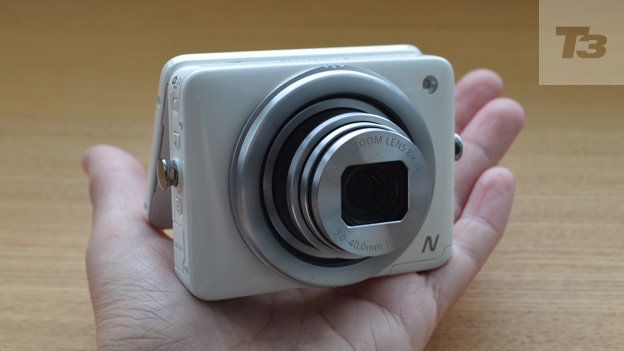
-
+
Compact design
-
+
Creative Mode
-
+
The fact that it's different
-
-
Unintuitive shutter button
-
-
Focus can be rather soft
-
-
Price
Why you can trust T3

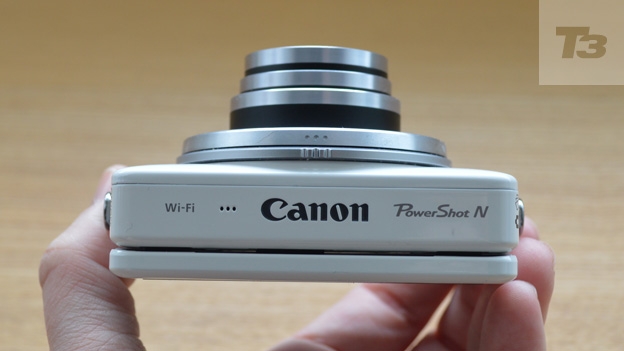
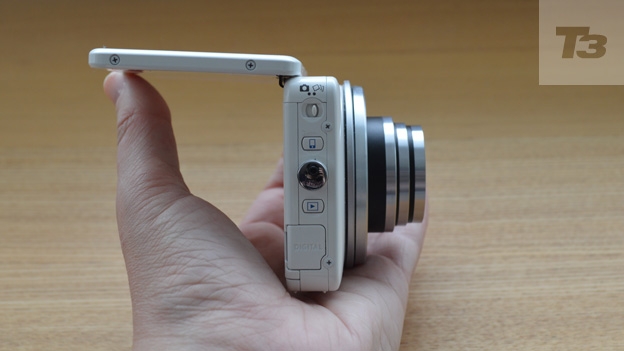
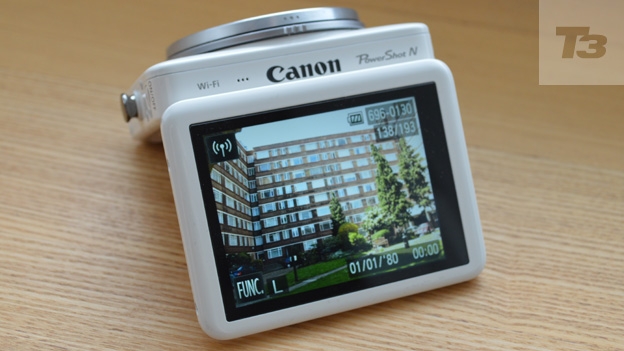
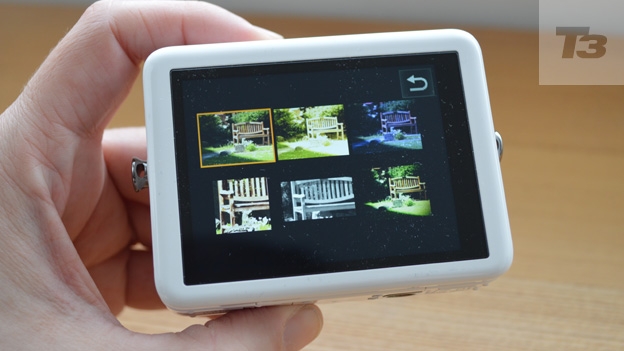
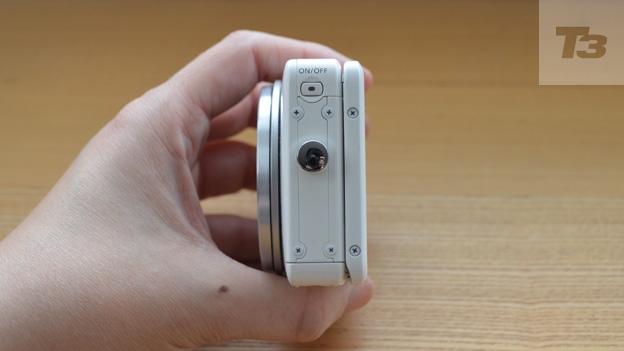
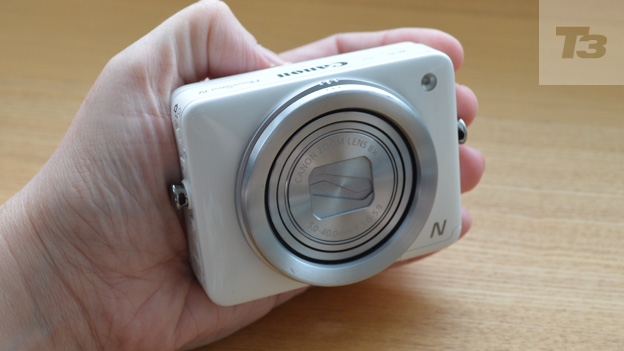
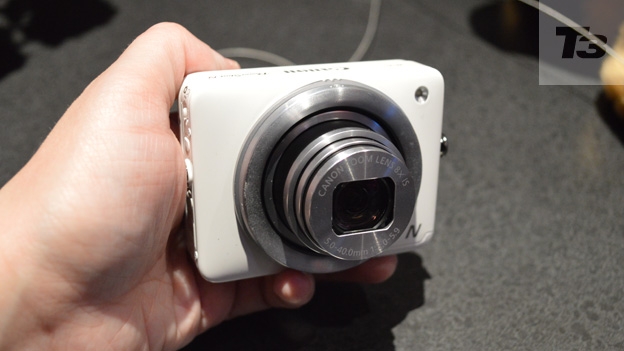
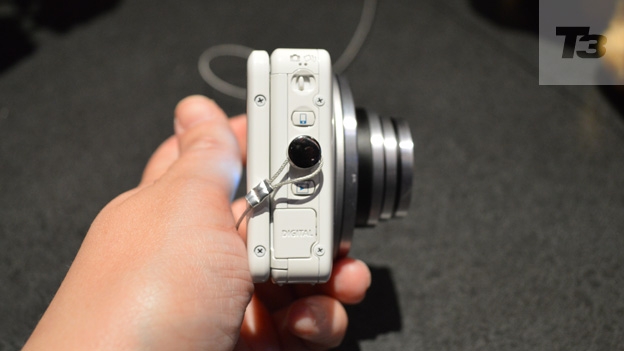
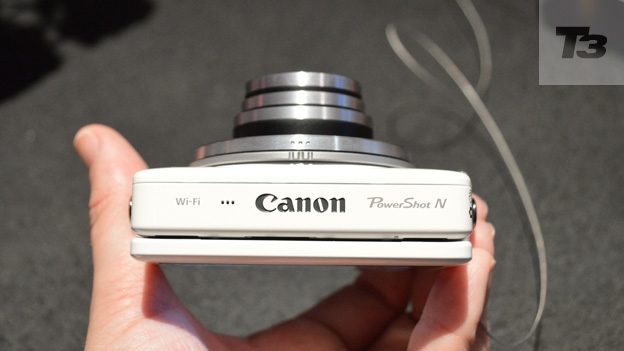
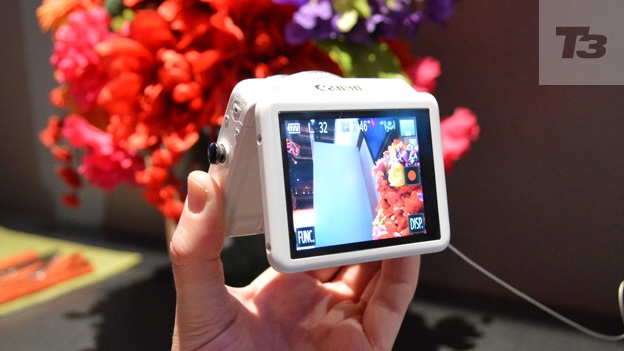
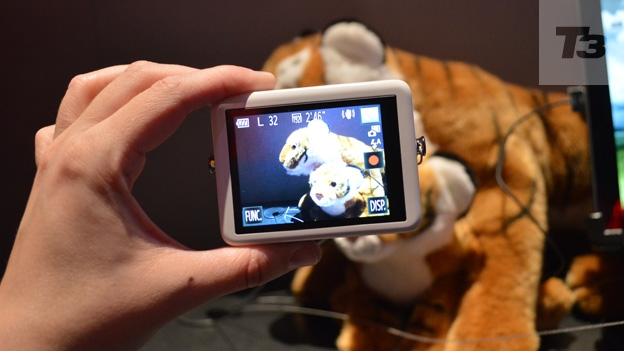
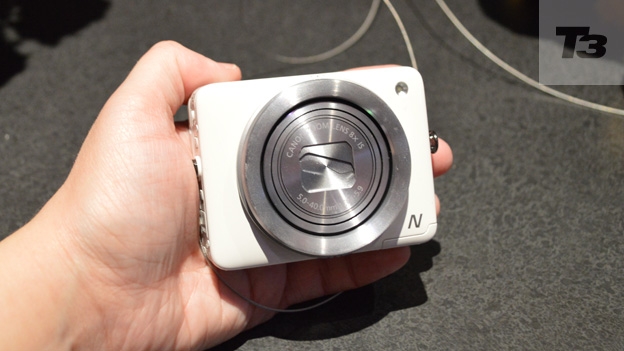
The Canon PowerShot N digital compact camera sports an innovative symmetrical design and lacks a conventional shutter button, but is it just too weird?
The Canon PowerShot N is digital compact camera with a difference. Its symmetical square shape means that it's designed to be used either left- or right-handed with exactly the same experience for the oft-ignored southpaws as for the righties. There's no shutter button on the top edge - instead you use the ring that surrounds the lens to take a picture. We're not convinced that there's really a need for 'left-handed' cameras, but the PowerShot N is certainly compelling...
Under the chassis, you'll find a 12.1MP sensor, a DIGIC 5 processor and an x8 optical zoom. The PowerShot N also features a creative mode that takes six shots at a time, automatically applying an arty filter to five and keeping the original in tact.
The fact that it also packs Wi-Fi connectivity means that the snapper is clearly aimed at Instagrammers and all those that post pictures of their dinner, cats and other miscellaneous tedium on Facebook at every opportunity.
Canon PowerShot N: Size and build
The design of the Powershot N is slick - the architectural look looks great on the white review sample we had to play around with, while the square shape and lack of buttons along the top give it a very modern edge that makes it stand out from competitors.
The metal body weighs in at 195g and measures 78.6 x 60.2 x 29.3 mm, so this is definitely a pocked-sized affair. It's not quite as tiny as the Nikon Coolpix S01, or as ultraslim as the Panasonic XS1 but it's still comparable to the likes of the Canon Ixus 510 when it comes to truly diminutive compacts.
With such a dinky camera, there's only room for a fiddly microSD card slot rather than a standard SD option.
Canon PowerShot N: Controls
Aside from the square design, the most striking difference on the PowerShot N is the lack of a conventional shutter button. Instead, pictures are taken by pushing down on the ring that surrounds the lens. This can also be pushed from the underside so that the camera can be used upside down - handy for overhead shots (as the screen only pivots 90 degrees in one direction).
We couldn't quite get used to taking snaps with the quirky control - it's certainly divisive. It's also worth noting that every single person we handed the camera to couldn't work out how to take a picture until we told them - showing exactly how counterintuitive the ring-based shutter button is.
Sitting around the shutter ring is a zoom ring which is relatively smooth although it's a little too fast so it's easy to zoom in or out too far at first. It's also surprisingly noisy.
You'll find a tiny power button on the left-hand edge, along with playback, Wi-Fi and a creative mode switch on the right (more on that below).
The lack of buttons is down to the fact that menus are operated using the touchscreen.
Canon PowerShot N: Screen
The 2.8-inch LCD screen isn't a bad size for a compact, as it takes up most of the back of the camera, just leaving room for a small bezel. And with resolution of around 461,000 dots, it's no slouch on detail and copes pretty well in bright light.
Its performance on a sunny day is also helped by the fact that it can be tilted 90 degrees upwards, which is handy for when you want to take shots nearer to the ground.
The fact that the camera can be used exacty the same upside down means that the screen effectively tilts downwards 90 degrees as well, which is great for overhead shots.
The touchscreen operation is pretty responsive, and you'll need it for navigating through the menus and for recording video and while the pinch zoom isn't quite as zippy as you'd find on top-tier smartphones like the iPhone 5 or HTC One, it's not at all bad.
Canon PowerShot N: Picture quality
The PowerShot N packs a f/3.0 – f/5.9, 5.0 – 40.0 mm lens along with a 12.1MP sensor and while it can't offer the kind of picture quality that you'd get from a high-end model like the Panasonic LX7 or Sony RX100, the PowerShot offers pretty decent images. Pictures pack punchy colours and good contrast.
The touch AF is very much aimed at smartphone users, and it does a good job, although we did notice the focus going a little soft towards the edge of the frame on some shots.
Shots taken at the upper levels of the 80-6400 range lose a lot in terms of detail, but that's not exactly unusual for a compact.
The creative mode is a nice touch in that it takes six shots at a time - one conventional snap, plus five to which it assigns various crops and retro filters. It's an easy way of grabbing Instagram-style shots without having to stop and think about which filter you want before or after you've taken you picture.
Get all the latest news, reviews, deals and buying guides on gorgeous tech, home and active products from the T3 experts
Just leave the mode switched on and the camera does the work for you. We got some decent results, although some might prefer to choose their own effects.
Aside from the creative mode, there's also a small of selection of standard filters than can be selected including fisheye, miniature (tilt-shift), toy camera, soft focus and monochrome.
Canon PowerShot N: Video
The PowerShot N can capture full HD 7920x1080 video and will also record while using the filters such as monochrome. Results are impressive, especially when it comes to colour reproduction.
When using the zoom in video mode, it operates at a much slower speed and less mechanical noise, although this does still get picked up by the on-board microphone.
Canon PowerShot N: Wi-Fi
The PowerShot includes built-in Wi-Fi, accessed by a single button on the side. We found that the camera took several attempts to connect to our Wi-Fi each time and didn't want to connect to our iPhone 4S hotspot without a struggle.
Once connected, the whole connected experience isn't terribly straightforward, as you still can't upload directly from the camera to, say Facebook. Instead, you're required to transfer the photos to another device then upload them from there, so it's not quite as slick as the Android-toting Samsung Galaxy Camera.
We uploaded our snaps to an iPhone 4S using the iOS Canon CameraWindow app. After viewing and selecting photos in the app, these then have to be saved to the image library on your phone before being uploaded. It's a bit of debacle, considering that you could just take the snaps with your camera, and upload directly from there.
Admittedly not all phones have a camera as good as this one, but top-tier handsets such as the HTC One and Sony Xperia Z can definitely give the PowerShot N a run for its money.
Canon PowerShot N: Battery
The small rechargeable NB-9L Li-ion battery offers up to 200 shots, says Canon, which we found to be a modest estimate. The battery is charged by plugging the charger directly into the camera, so the PowerShot is out of action while it's being powered up.
Canon PowerShot N: Verdict
The Canon PowerShot N is a nice idea and it's great to see one of the big camera brands doing something a bit different. We like the overall design and the pint-sized dimensions, and the creative mode is a nice touch.
However, the fact that the uploading over Wi-Fi is rather convoluted makes the camera slightly less compelling and not that much different to having a top-tier smartphone (which, by contrast, you can upload from with ease).
The main advantage the PowerShot has over a phone is the optical zoom. It's a fun little compact, but the slight lack of manual options and the oddly unintuitive shutter button make the price tag too high.
Canon PowerShot N release date: Out now
Canon PowerShot N price: £269.99